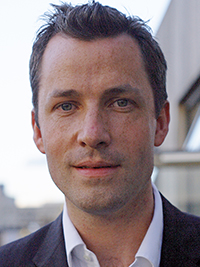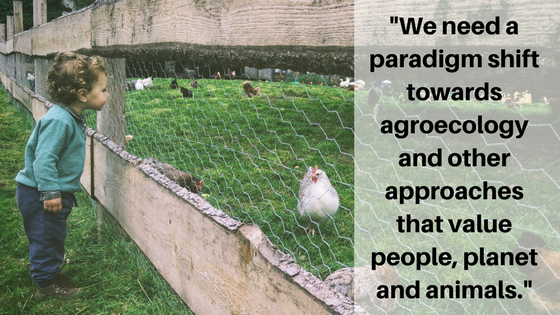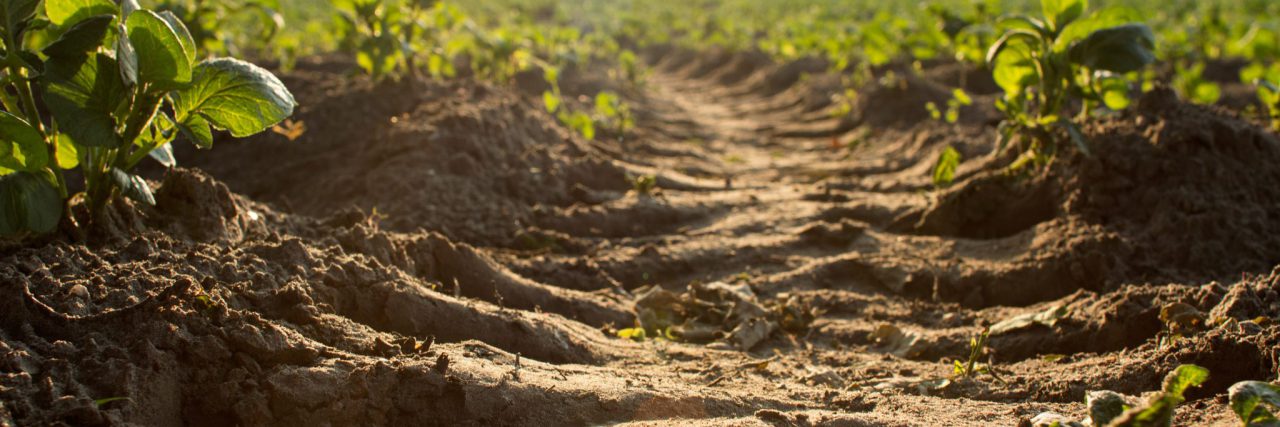
The Asterix fans amongst you will know that the Gauls have only one fear, namely that the sky may fall on their heads tomorrow. As Chief Vitalstatistix says, “but tomorrow never comes”. Whilst the Chief is of course right, we should remember that ‘tomorrow’ is always less than 24 hours away. Wearing a food systems hat, we need to take the threat of the sky falling in tomorrow more seriously.
Research is the bridge between the problems of today and the solutions for tomorrow. There are enough ‘hockey stick’ graphs – of climate change, biodiversity loss, obesity and other negative products of the current industrial food system – to make the case for proper investment in long-term solutions and an appropriate, inclusive, ethical food and farming research agenda. Yet, the evidence has been ignored. Every day counts for food and farming research. However, we’re not using every day, or indeed every pound, as wisely as we should.
The scientific quality of most UK food and farming research is very high. Much food and farming research is arguably supporting current industrial food and farming quite well. However, flaws in the current food and farming systems mean too often research is being asked for that delivers for private gain, rather than public good. There are also serious issues about the research agenda – like what is researched and how the use of its products are regulated – that are seldom questioned. That’s where we at the Food Ethics Council come in.
The ‘status quo’ industrial research paradigm needs an overhaul. It suffers from too often having a narrow agenda, undue corporate influence, opaqueness and too much emphasis on immediacy, rather than supporting long-term approaches. It is also often based on questionable underlying assumptions, such as ‘food production has to increase by 70% by 2050’ and similar statements that are often recited without question. Those driving the research and industrial innovation agendas are too frequently operating without addressing fundamental ethical questions about the wider purpose of the research and what its social and environmental implications are.

It is of course easy to criticise the ‘status quo’, in whatever walk of life. Perhaps more useful is to set out what is needed. To pick out a few from a long list, a progressive research agenda needs:
- Serious investment in transformational research that benefits the world’s main food producers (particularly smallholders), citizens, animals, the environment and future generations – in the UK’s international research footprint and at home
- Radical transparency – including from UKRI on funding sources, potential conflicts of interest, agenda setting processes and underlying assumptions behind any research
- A genuinely inclusive approach – including farmer-led and community-led research, not simply that imposed from industrial food systems
- The products and intellectual content, and their derivatives, of (especially) publicly-funded food and agricultural research to be kept in the public domain
- Proper application of the precautionary principle – a post-Brexit UK needs effective and appropriate levels of regulation in place, especially for technologies used in food and farming, including new biotechnologies such as synthetic biology and gene editing.
We require an inclusive research setting process, a transparent research agenda and the application of research that contributes towards food systems that are fair, humane, healthy and environmentally sustainable. We need a paradigm shift towards agroecology and other approaches that value people, planet and animals.
There is an urgency to all this that is often neglected. We need urgent responses to the ‘knowns’ of climate change, biodiversity loss, obesity and hunger. We urgently need to build resilience for the ‘unknowns’ too. This can not wait until tomorrow.
Let’s at least ensure all food and farming research is designed to help achieve the Sustainable Development Goals (‘SDGs’). The timeframe for the SDGs – 31st December 2030 – is less than 5,000 days away. Think how quickly a day passes. You soon realise that 2030 is not that far away.
Tomorrow is approaching fast. Every day counts. Let’s transform our food and farming systems for the better today and together.
About Dan Crossley
As Executive Director for the Food Ethics Council, Dan Crossley manages the Council’s overall work programme, including its Business Forum. A highly experienced sustainable food policy strategist, advocate and policy research leader, Dan’s background is firmly rooted in ethical and sustainable food issues.
Read more about this research agenda
This article draws on ‘For whom? Questioning the food and farming research agenda’, a new publication from the Food Ethics Council. This is a collection of articles that addresses how the research agenda is set in food and farming, unmasks and challenges the dominant research paradigm, and highlights inclusive alternatives to deliver public good.
GFS disclaimer
The GFS blog encourages discussion and debate on food security issues with contributions from a variety of perspectives. The views expressed are those of the author and do not necessarily reflect those of the GFS programme or its partners.




Couldn’t agree more – particularly with regard to the kind of research that receives funding